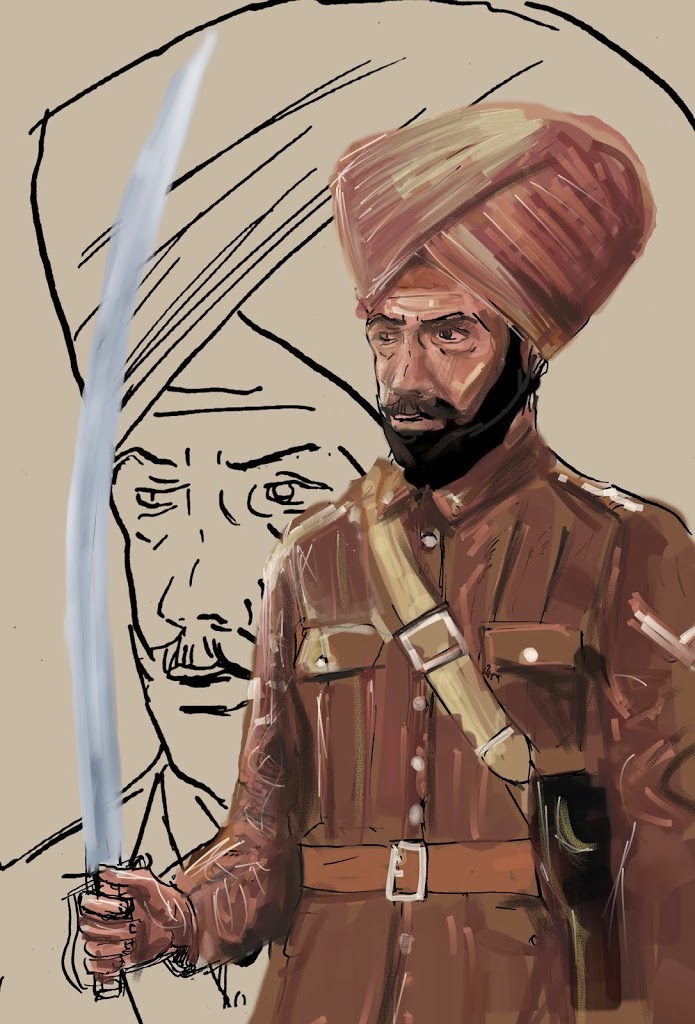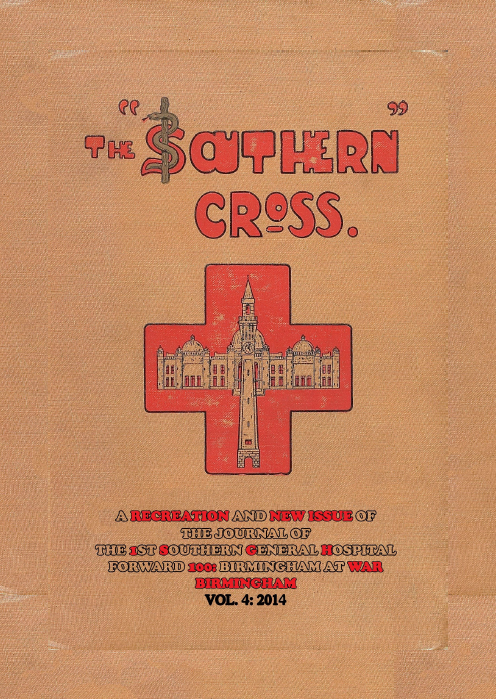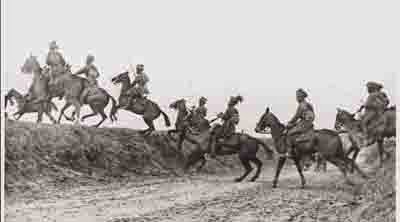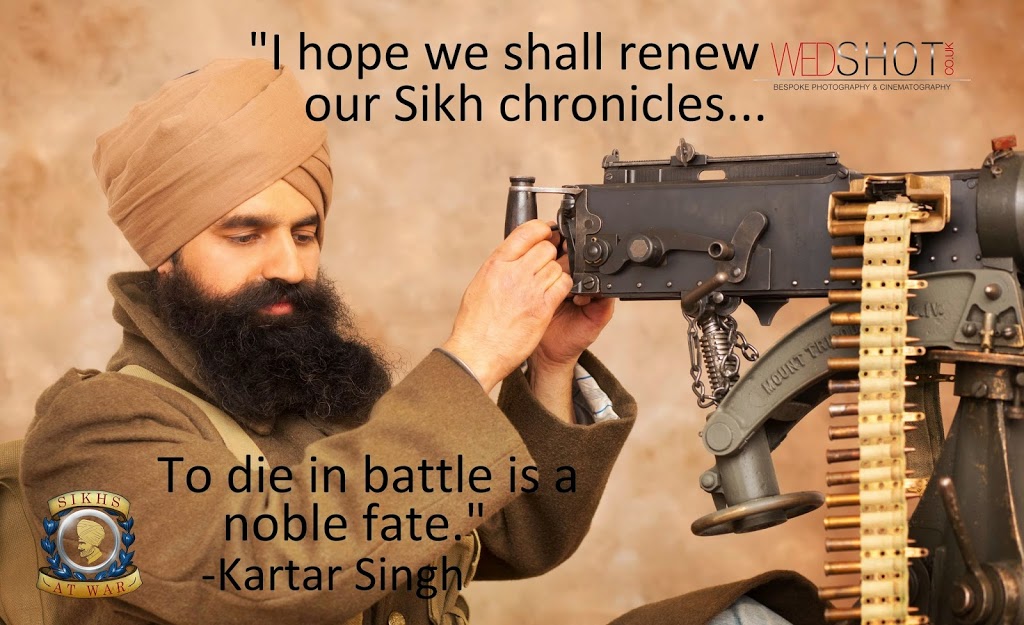A team of University of Birmingham PhD students have undertaken the marvelous task for the WW1 centenary anniversary of re-creating the old “Southern Cross” War Hospital Magazine.
The magazine was published in Birmingham between 1916-18, and featured stories jokes and graphics from injured soldiers and their families.
Birmingham has a rich heritage of caring for the war injured – from the first Southern Cross War Hospital to the new Department of Defence Medicine at the Queen Elizabeth Hospital.
So I was delighted to have been invited to contribute an article to the centenary magazine; not only to support this initiative as a proud Brummie but also because the creators wanted to reflect upon the rich contribution of Sikhs who fought in a city where the Sikh impact is truly visible.
The magazine is free and available from BBC Mailbox, University of Birmingham and the QE Hospital.
For more information on the Forward 100: Birmingham At War project here.
**********************
Renewing Our Sikh chronicles.
By J. Singh-Sohal
Director, www.SikhsAtWar.info

A hundred years ago, thousands of Sikhs left their villages and towns to travel across the ocean with the British Indian Army to fight in a faraway land they had never imagined they would see.
They knew that in serving the British they were fighting for a just cause; they had grown up on the chronicles of valour of how their forefathers had fought against the foreigners who now ruled their lands, but they had no hesitation in believing that the British cause was righteous and just.
And it was in doing this duty that they felt connected with their martial tradition – one which stemmed back to the times of the Sikh Gurus who had established the doctrine of a Sikh being both a saint and soldier; merging spiritual virtue with temporal power to create a race of people ever ready to fight against tyranny. Who would stand out in the world as distinct, with flowing beards and tall turban alongside the articles of faith carried as part of their code of conduct, or reht maryada.
The British Indian Army embraced the Sikhs and the source of their prowess, acknowledging the hairy turbanned warriors as a martial race, indeed ensuring only those baptised into the Sikh brotherhood – the Khalsa – served. The British even raised class-based regiments of Sikhs so the band of brothers could fight alongside their kinsmen and be properly administered according to their customs in the field.
So it was no surprise that at the onset of the Great War, the rallying cry of the Sikhs was the loudest amongst all the native tribes of India, of which they were a minority.
In total up to 130,000 Sikhs fought during the conflict, and their contribution deserves greater praise when considering that despite being only 2% of the population of India at the time they made up 20% of the Indian army in action.
The Sikhs were represented in 29 cavalry and 54 infantry regiments – more than even the Gurkhas – in Sikh regiments as well as mixed-class Punjabi regiments where they were barracked alongside Hindus and Muslims.
The Sikhs took to the war with great gusto because they believed it was their opportunity to show the world the creed of the Khalsa. Writing of the war on the western front in January 1916, Signaller Kartar Singh summed up the feeling: “We shall never get such another chance to exalt the name of race, country, ancestors, parents, village and brothers, and to prove our loyalty to the Government. I hope we shall renew our Sikh chronicles.”

Their necessity to the international war effort is reflected in that they fought in every arena of the conflict; from the trenches of the western front to the deserts of Mesopotamia, the ill-fated Gallipoli campaign to the game of cat-and-mouse played out across vast swathes of East Africa; Egypt to Jerusalem, Persia to the North West frontier. They were stationed in Burma, in Hong Kong and took part in little-known missions such as in Trans-Caspia.
The Sikhs lived up to their martial traditions and showed remarkable courage and heroism. This is best seen in the tally of decorations and medals they amassed during the conflict between 1914 and 1919: 29% of all Indian Orders of Merit awarded were to Sikhs, 24% of Indian Distinguished Service Medals awarded were to Sikhs. They gained 22 Military Crosses and a host of European gallantry awards such as the French Croix De Guerre, Rumanian Order of the Crown and Russian Cross of St George.
In ending his letter home to his village, the brave Kartar Singh echoed the sentiments of many of his brethren who saw the war as the defining moment of not just their lives but the reputation of their community: “I pray to God to give us a chance to meet the foe face to face – to die in battle is a noble fate.“
For a race of landlocked people, the war and service to the British took the Sikhs far and wide; it instilled in them the confidence to spread their wings, to see the world and settle outside of the Punjab in greater numbers. The clearest indication of the success of the Diaspora is seen here in Britain, where Sikhs are visibly noticed in every industry and profession, contributing to the economy and serving Britain today not just through their martial skills but by serving others and creating wealth.
Yet, it is the story of the Sikh soldier from whence it all stems. The loyal confident Sikh ever zealous about his role in the world, inspired by his faith and identity; fighting for the British but with the name of God and his Guru in his heart. The soldier who would sacrifice for a just cause, the Sikh who would fight to the bitter end – and then some – to uphold the Khalsa traditions.
This is a living history, it can – and does – inspire a new generation to stand up and be of service. It’s what led me to serve Britain as an Army reservist myself. To follow in their footsteps and maintain the heritage of Anglo-Sikh relations, to be a part of a greater cause and add value to Her Majesty’s Armed Forces.
We have indeed renewed our Sikh chronicles, and those inspired to live according to those traditions will continue to renew them into the future – it binds us to Britain and enables us to be great.
 A hundred years ago, thousands of Sikhs left their villages and towns to travel across the ocean with the British Indian Army to fight in a faraway land they had never imagined they would see.
A hundred years ago, thousands of Sikhs left their villages and towns to travel across the ocean with the British Indian Army to fight in a faraway land they had never imagined they would see. Their necessity to the international war effort is reflected in that they fought in every arena of the conflict; from the trenches of the western front to the deserts of Mesopotamia, the ill-fated Gallipoli campaign to the game of cat-and-mouse played out across vast swathes of East Africa; Egypt to Jerusalem, Persia to the North West frontier. They were stationed in Burma, in Hong Kong and took part in little-known missions such as in Trans-Caspia.
Their necessity to the international war effort is reflected in that they fought in every arena of the conflict; from the trenches of the western front to the deserts of Mesopotamia, the ill-fated Gallipoli campaign to the game of cat-and-mouse played out across vast swathes of East Africa; Egypt to Jerusalem, Persia to the North West frontier. They were stationed in Burma, in Hong Kong and took part in little-known missions such as in Trans-Caspia.




